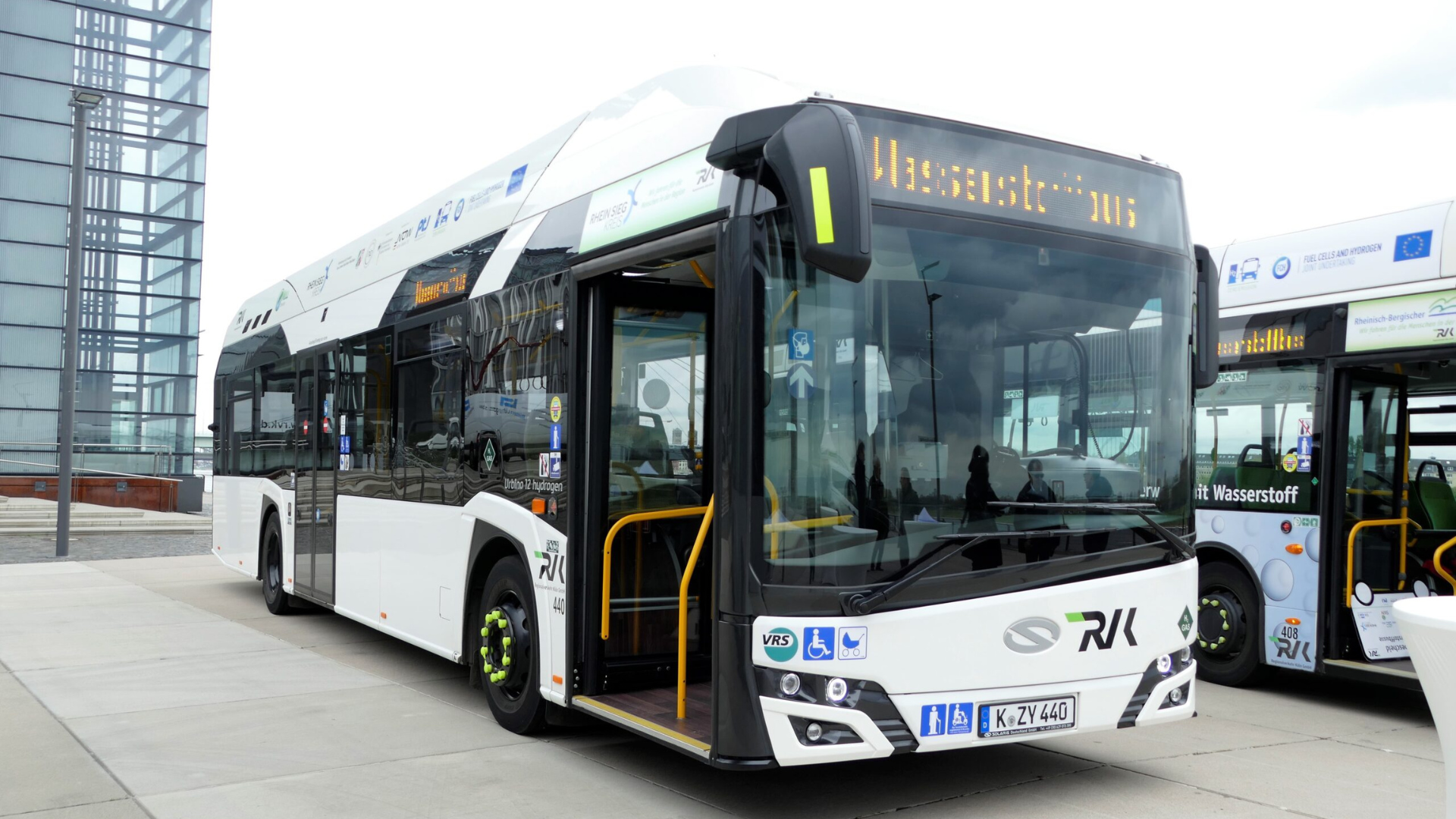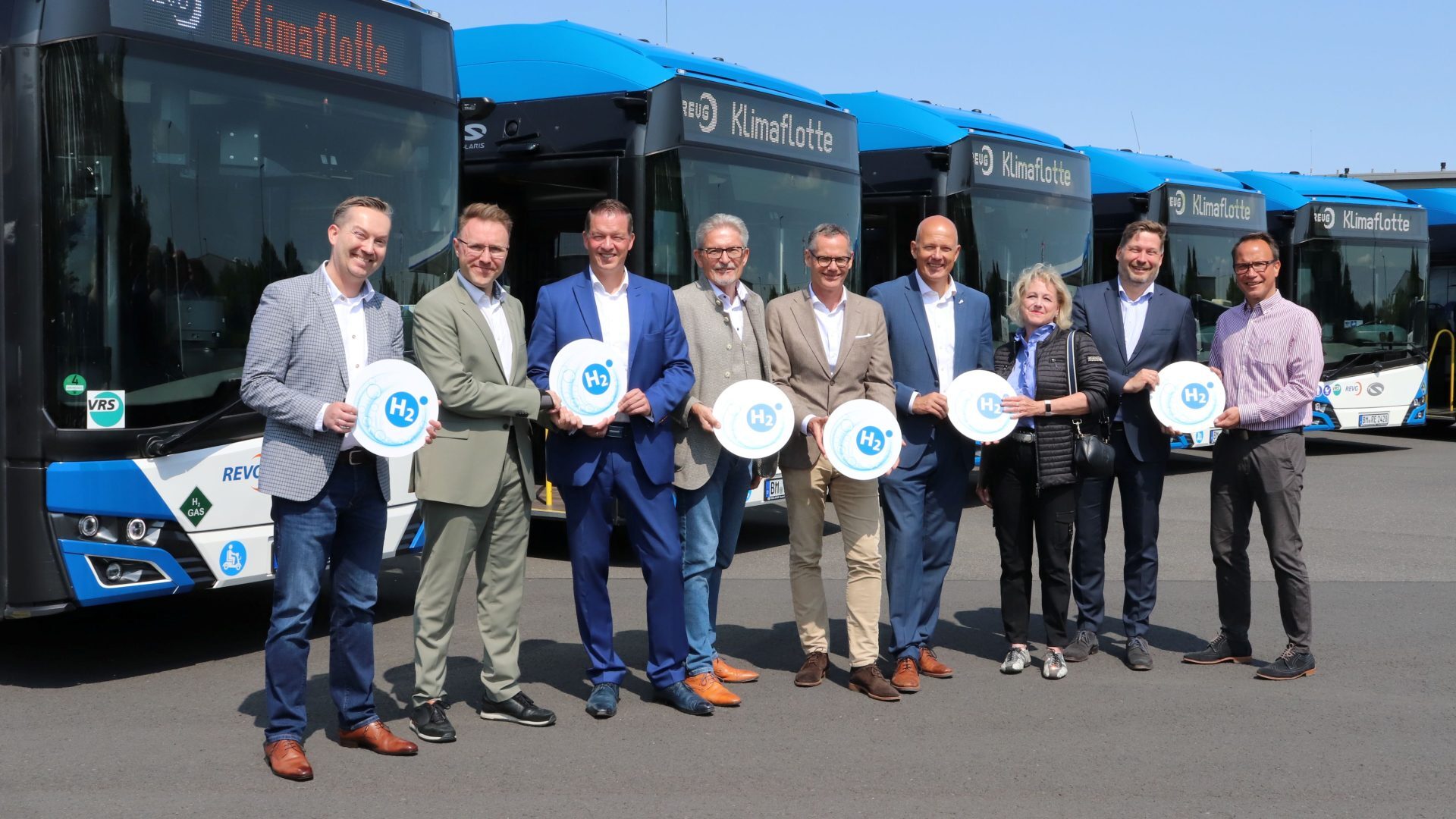
With a wave of hydrogen-powered public transit deployments being delivered throughout Europe during 2025, the latest fuel cell bus fleet in Germany - powered by Ballard - has now entered service near Cologne.
Officially presented to the public by transit operator Rhein-Erft-Verkehrsgesellschaft mbH (REVG) on June 2 in Kerpen, the fleet of 26 Solaris Urbino 12 hydrogen buses is now in regular service across the Rhein-Erft district in western Germany.
The investment in zero-emission technology is backed by the German Federal Ministry for Digital and Transport (BMDV), as part of the national program to support alternative drivetrains in public transport. The support also draws from the European Union’s NextGenerationEU program.
 Representatives from REVG, Solaris, and local mobility company and government officials pose in front of the new decarbonized fleet for Kerpen
Representatives from REVG, Solaris, and local mobility company and government officials pose in front of the new decarbonized fleet for Kerpen
With a range of up to 350 kilometers and a quick refueling time of 10-15 minutes, the Urbino 12 integrates Ballard’s FCmove®-HD 70kW fuel cell engine.
Combining a powerful electric motor and a traction battery to ensures reliable, quiet, and emission-free propulsion, the FCmove®-HD is a proven, durable fuel cell module with high efficiency and performance, making it a desirable solution for system integrators and vehicle OEMs.
The latest deployment in Kerpen demonstrates the growing level of confidence among European transit operators in hydrogen fuel cells as the zero-emission solution for public transportation fleets with challenging daily duty cycles.
REVG’s roll-out follows the introduction of German fuel cell bus fleets this year in Duisburg (11 units) and Rostock (52 units), while Solaris buses have also supported substantial new operations further afield in Bologna and Ferrara, Italy (37 units), and Barcelona, Spain (38 units).
Refueling the Urbino 12 fleet is undertaken at a hydrogen refueling station (HRS) on REVG premises. Built in October 2024, the HRS is supplied exclusively with green hydrogen – meeting the domestic requirements of Germany’s Federal Ministry for the Promotion of Vehicle Procurement.
REVG's procurement strategy is formed by achieving a balance between technological feasibility, economic viability, and environmental impact. Its decision to use hydrogen technology was based on a feasibility study and a future-oriented strategic approach – supported by the operator’s supervisory board.